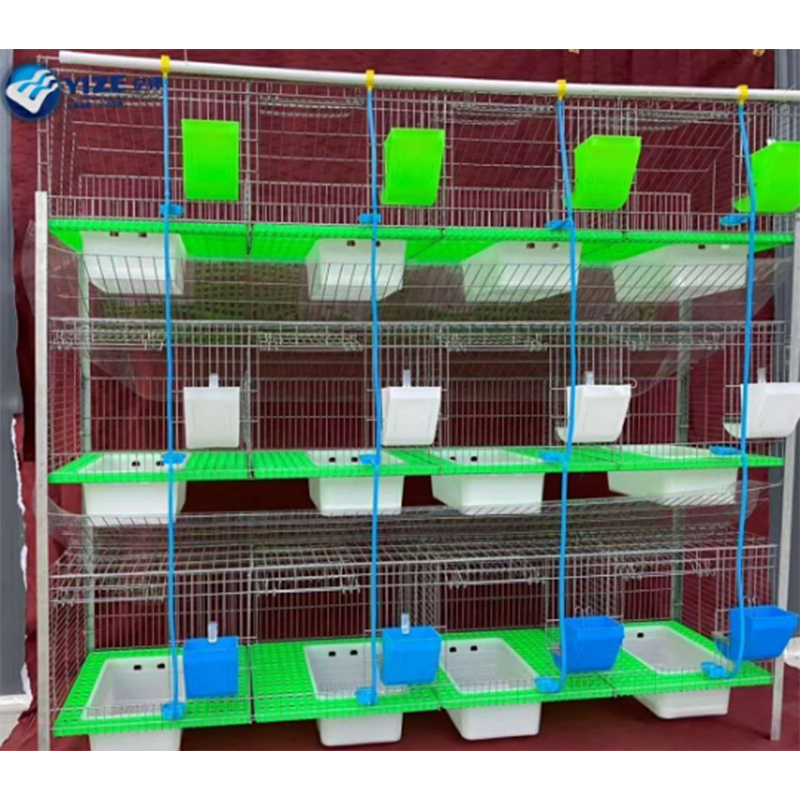pullet chicken cages
Nov . 05, 2024 01:06 Back to list
pullet chicken cages
The Role of Pullet Chicken Cages in Modern Poultry Farming
The poultry industry plays a crucial role in global food production, providing a significant source of protein through meat and eggs. Among the various segments of this industry, the rearing of pullets—young female chickens that will become layers—is particularly important. The efficient management of pullet production is critical for ensuring the supply of high-quality hens. One of the most significant innovations in this field is the use of pullet chicken cages, which optimize space, enhance animal welfare, and improve overall farm productivity.
Understanding Pullet Chicken Cages
Pullet chicken cages are specially designed enclosures that house young hens from the age of day-old chicks until they are ready to begin laying eggs. These cages vary in size and design but typically prioritize both the welfare of the chickens and the ease of farm management. The cages allow for controlled environments, protecting the pullets from predators, extreme weather, and disease transmission, ensuring they grow in a safe and clean environment.
Advantages of Using Cages
1. Space Efficiency Pullet cages are designed to maximize the use of space within poultry farms. By stacking cages vertically, farmers can house a significantly larger number of birds in a smaller area compared to traditional rearing methods. This spatial efficiency not only reduces land use but also lowers construction and maintenance costs for poultry operations.
2. Health Management By keeping pullets in cages, farmers can better control their environment, including ventilation, lighting, and temperature. This control is crucial for preventing the spread of diseases and ensuring that pullets grow robustly. Cages facilitate better management of waste, reducing the likelihood of infections that can be prevalent in litter-based systems.
3. Improved Growth Rates Research has indicated that pullets raised in controlled environments such as cages often exhibit improved growth rates and higher survival rates. The consistent access to feed and water, along with a stable living environment, contributes to their overall health and productivity. Furthermore, this can lead to a more uniform flock of hens, which is advantageous for producers looking to ensure consistent egg production levels.
pullet chicken cages

4. Animal Welfare While traditional views often criticize cage farming for animal welfare concerns, modern cage systems have evolved significantly. Enriched cages provide more space per bird, along with features that promote natural behaviors, including perches and nesting areas. As consumers increasingly demand ethical farming practices, the industry has responded by improving conditions for pullets.
5. Labor Efficiency Managing a flock of pullets in cages requires less labor compared to free-range systems. Automated feeders and waterers can be integrated into cage systems, reducing the need for manual labor. This efficiency allows farmers to allocate their workforce to other critical tasks, enhancing overall productivity.
Challenges and Considerations
Despite the advantages, the use of pullet chicken cages is not without challenges. Critics argue that even enriched cage systems can limit some natural behaviors of chickens, such as foraging and dust bathing. Thus, ongoing research and development are vital to ensure that welfare standards continue to improve, balancing productivity with the needs of the animals.
Moreover, the industry's shift towards cage-free systems in response to consumer demand raises questions about the future role of cages in pullet rearing. As regulations evolve and more farms adopt alternative methods, the industry will need to ensure that the productivity benefits of cage systems are not lost while simultaneously meeting the expectations for animal welfare.
Conclusion
Pullet chicken cages represent a significant advancement in poultry farming, optimizing space, enhancing health management, and promoting efficiency. As the industry continues to evolve, it is crucial to balance the benefits of these systems with the growing emphasis on animal welfare. With ongoing innovation and a commitment to ethical practices, pullet chicken cages can continue to play a pivotal role in providing a steady supply of high-quality hens for the global market, ultimately contributing to food security and sustainable farming practices.
-
Hot Sale 24 & 18 Door Rabbit Cages - Premium Breeding Solutions
NewsJul.25,2025
-
Automatic Feeding Line System Pan Feeder Nipple Drinker - Anping County Yize Metal Products Co., Ltd.
NewsJul.21,2025
-
Automatic Feeding Line System Pan Feeder Nipple Drinker - Anping County Yize Metal Products Co., Ltd.
NewsJul.21,2025
-
Automatic Feeding Line System - Anping Yize | Precision & Nipple
NewsJul.21,2025
-
Automatic Feeding Line System - Anping Yize | Precision & Nipple
NewsJul.21,2025
-
Automatic Feeding Line System-Anping County Yize Metal Products Co., Ltd.|Efficient Feed Distribution&Customized Animal Farming Solutions
NewsJul.21,2025






